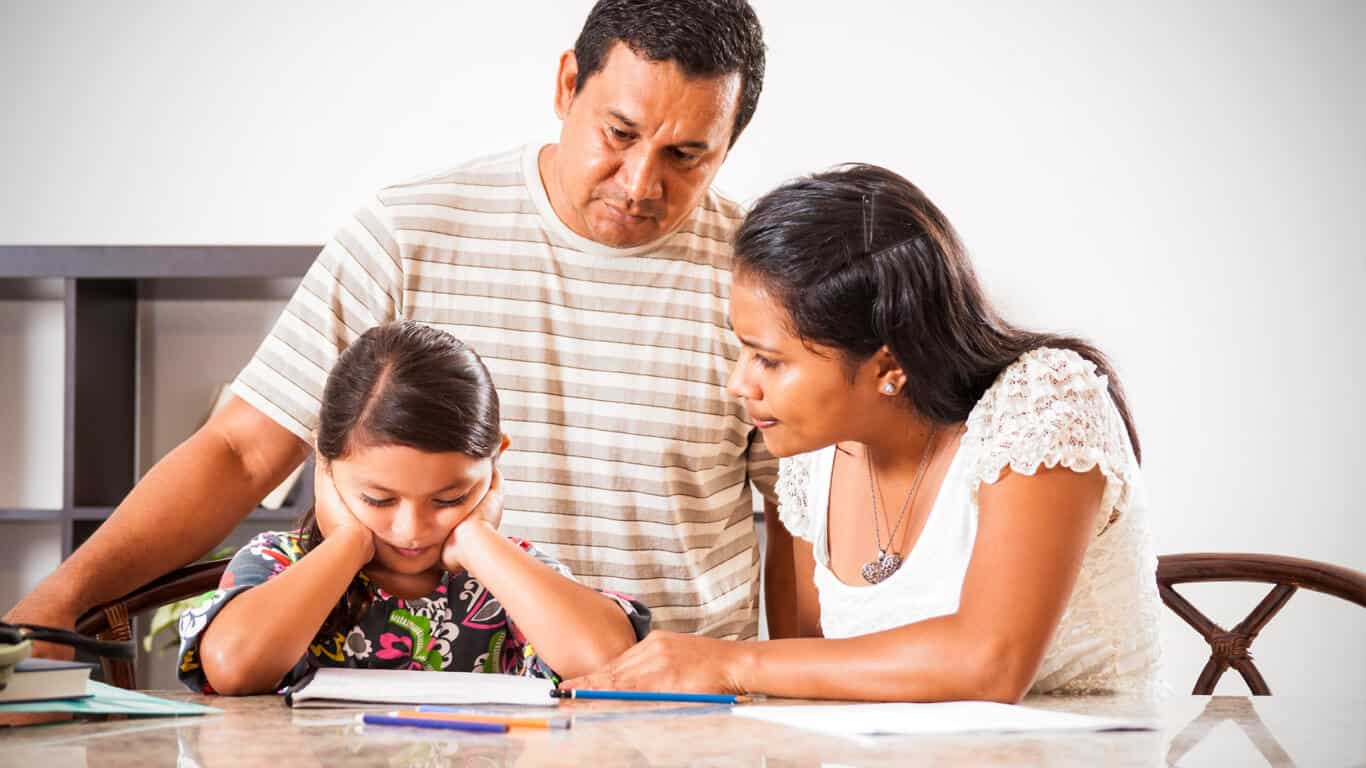Learning difficulty doesn’t have anything to do with a person’s intelligence – after all successful people as Walt Disney, Alexander Graham Bell, and Winston Churchill all had learning disabilities.
Nearly 10% of children in each class suffer from Learning Difficulty. The most important task is to identify this at an early stage so that it does not become a nightmare for the child. There are many kinds of learning disabilities each having its own attribute and affecting a child in some or the other way.
Key solutions with RMCC:
- Identification of Learning Difficulty through assessment batteries
- Type and extent (level) of difficulty
- Unique intervention programs to overcome LD
What are Learning Difficulties (LD)?
At Ramdhar Maheshwari Counseling Centre (RMCC), we describe a ‘learning difficulty’ as a problem of understanding or an emotional difficulty that affects a person’s ability to learn, get along with others and follow convention.
On a day-to-day basis, that can be many things – not being able to concentrate for long periods, getting bored easily, acting impulsively, tripping over things, trying to make sense of what we read or write, living in our own world, losing track of time, forgetting what we have just learnt, being single-minded or extraordinarily talented…
But these are things we perhaps all experience from time to time. It’s when these characteristics become prominent that they turn into learning difficulties.
Today, at least five children in every school class have some form of learning difficulty. These difficulties rarely appear in isolation and frequently co-exist or overlap with other conditions. And they don’t go away, so children with learning difficulties tend to grow up to be adults with learning difficulties. For parents, that can be a frightening prospect – especially as many people confuse learning difficulties with learning disabilities. What to do? Where to go? Who to listen to? Who not to listen to? What rights do you have? How best to guide your son or daughter through life?
At RMCC, we help you find the answers.
How Can You Tell If Someone Has a Learning Disability?
The hallmark sign of a learning disability is a distinct and unexplained gap between a person’s level of expected achievement and their performance. Learning disabilities affect every person differently and they present differently at various stages of development. LDs can range from mild to severe and it is not uncommon for people to have more than one learning disability. In addition, about one-third of individuals with LD also have Attention-Deficit / Hyperactivity Disorder (ADHD). While LD and ADHD can share common features, such as difficulties with concentration, memory, and organizational skills, they are not the same types of disorder.
Unfortunately, LD is often confused with ADHD and is frequently mistaken as laziness or associated with disorders of emotion and behaviour. A careful and thorough review of concerns, with input from multiple sources (including parents, educators, physicians, psychologists, speech-language providers and, of course, the person themselves) is the only way to rule in or rule out a learning disability.
Learning disabilities can affect a person’s ability in the areas of Listening , Speaking , Reading , Writing , Spelling , Reasoning , Mathematics
| Disability | Area of difficulty | Symtoms include trouble with |
|---|---|---|
| Dyslexia | Difficulty processing language | Problems reading, writing, spelling, speaking |
| Dyscalculia | Difficulty with math | Problems doing math problems, understanding time using money |
| Dysgraphia | Difficulty with writing | Problems with handwriting, spelling, organizing ideas |
| Dyspraxia (Sensory Integration Disorder) | Difficulty with fine motor skills | Problems with hand-eye coordination balance, manual dexterity |
| Auditory Processing Disorder | Difficulty hearing differences between sounds | Problems with reading, comprehension, language |
| Visual Processing Disorder | Difficulty interpreting visual information | Problems with reading, math, maps, charts, symbols, pictures |
| Attention – Deficit/Hyperactivity Disorder (ADHD) | Difficulty in Concentration and focus | Can’t sit still, loses interest quickly, daydreams |
RMCC is providing comprehensive skill development programs and end to end solutions in areas of learning difficulties amongst children. Specifically the services offered are:
- Identification of Learning Difficulty (LD)
- Skill Development of Learning Difficulty (LD) students
- Parent/Teacher Training
LEARNING DIFFICULTY SOLUTIONS AT RMCC
Identification of Learning Difficulties
RMCC provides services to identify learning difficulties in children. A battery of tests modified as per Indian Standards help in identification of the type and extent of learning difficulty. These tests are administered in two settings.
- Individual Testing – Administered to individual students at RMCC.
- Group Testing – Administered to group of students at institutional premises.
Skill Development in Learning Difficulties
Based on the identification of type and degree of Learning Difficulty RMCC provides comprehensive skill development programs to address learning difficulties.



